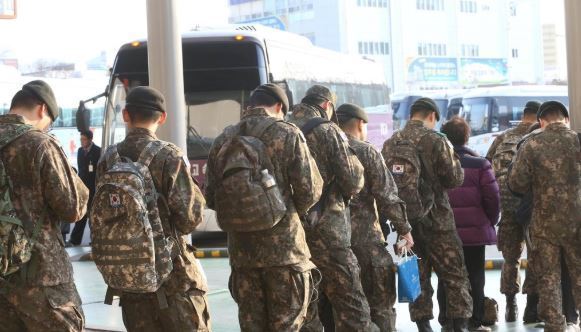[Newsmaker] Verdicts vary for Jehovah’s Witnesses refusing conscription
By Kim So-hyunPublished : Dec. 4, 2019 - 14:19
Jehovah’s Witnesses refusing mandatory military service have regularly been found guilty or not guilty of evading conscription based on whether they had “true faith.”
A 24-year-old Jehovah’s Witness received a notice of enlistment from the Daejeon-South Chungcheong Regional Military Manpower Administration in September 2017, and refused conscription citing religious grounds.
He submitted to the authorities papers stating that he belongs to the religious group and that he refuses military service based on his “Bible-trained conscience.”
A 24-year-old Jehovah’s Witness received a notice of enlistment from the Daejeon-South Chungcheong Regional Military Manpower Administration in September 2017, and refused conscription citing religious grounds.
He submitted to the authorities papers stating that he belongs to the religious group and that he refuses military service based on his “Bible-trained conscience.”

Another Jehovah’s Witness, 22, did the same in October 2017, stating he would gladly accept an alternative service when it is introduced.
They were put on trial for violating the Military Service Act, and the court ruled them both not guilty.
The judge at the Daejeon District Court said both men had valid reasons for refusing military service as they had “deep, firm and true conscience.”
After they were baptized, the two consistently attended Jehovah’s Witness assemblies and participated in the group’s activities every month, the judge said.
An appellate court judge said there was “no mistake of fact or mistake of law in the original ruling.”
In November last year, the Supreme Court ruled that religious and conscientious beliefs are to be considered valid reasons for refusing mandatory military service.
In another case, however, a 26-year-old Jehovah’s Witness was sentenced to a year in prison, suspended for three years, for refusing enlistment.
An appellate court late last month maintained the guilty verdict, while reducing the sentence from the first court of instance in April 2018.
The penalty was lessened in consideration of the fact that an alternative service system should be introduced soon and that the defendant was a first-time offender.
The defendant said he refused to enlist as he wished to “vigorously abide by the biblical principle to love one’s neighbors.”
The appellate court said the defendant “lacked deep, firm and true faith” as it was difficult to say that he has “lived a life that practiced love to the extent that differentiates him from others liable for military duty.”
The court said he did not seem to have a conscientious belief that performing military service would destroy his moral value of existence.
The defendant has appealed to the Supreme Court.
By Kim So-hyun (sophie@heraldcorp.com)



















![[Today’s K-pop] BTS pop-up event to come to Seoul](http://res.heraldm.com/phpwas/restmb_idxmake.php?idx=642&simg=/content/image/2024/04/17/20240417050734_0.jpg&u=)